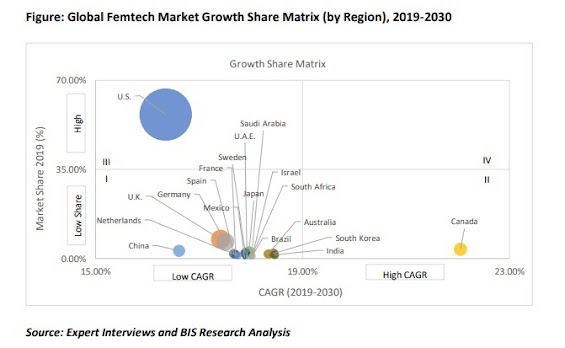The global constrained peptide drugs market is anticipated to be valued at $60.1 million in 2023 and is expected to grow to $10,367.2 million by 2031, growing at a projected CAGR of 90.37% during the forecast period 2020-2031. The market is favored by the development and launch of pipeline constrained peptide drugs and the ability to target varied biological interventions with innovate route of administration. The gradual increase in the prevalence of oncology and rare diseases globally has fueled the constrained peptide drugs market.
Several key players such as Aileron Therapeutics, Inc., Protagonist Therapeutics, Inc., and Bicycle Therapeutics PLC are focusing on expanding their product portfolios, subsequently strengthening their positions in the market. They have been expanding their product portfolios for diversified biological interventions, including neurology, metabolic, and anti-infectives
Addressable Market Size and Forecast based on Region
In 2023, the global constrained peptide drugs market is anticipated to be $60.1 million, which is expected to reach $10367.2 million in 2031, growing at the CAGR of 90.37 % during the forecast period 2020-2031. The North America global constrained peptide drugs market is expected to be valued High in 2023 and the region is expected to be the leading contributor in the market. The growing prevalence of genetic disorders, and chronic diseases such as lung cancer and tumors, and the early launch of pipeline products are factors that lead to the dominance of North America in the global constrained peptide drugs market. Furthermore, North America is home to several constrained peptide-based manufacturers as well as service providers, and the availability of funding for the new entrants by venture capitalists is driving the growth of the market in the region.
Followed by North America, Europe held the second-largest share in the global market. The increase in the market growth can be attributed to factors such as research grants and funding by government and non-profit organizations, the launch of research and development programs by the biopharmaceutical companies and research organizations, which has driven the growth of the region.
Current Scenario of the Constrained Peptide Drugs Pipeline
As per the clinical trial registry, there are 18 clinical studies ongoing at different stages evaluating the potential of constrained peptides as therapeutic agents for a diversified range of indications. The most advanced constrained peptide pipeline drug candidates include Zilucoplan (RA101495), Rusfertide (PTG-300), PNR-943, BT1718, and BT5528. Zilucoplan (RA101495), developed by Union Chimique Belge S.A. is under phase III clinical trial for treating subjects with Generalized Myasthenia Gravis.It is followed by Rusfertide (PTG-300) and PNR-943 developed by Protagonist Therapeutics, Inc. in phase II for indications polycythemia vera, hereditary hemochromatosis, and ulcerative colitis.
Other companies conducting clinical studies of constrained peptide candidates include Bicycle Therapeutics PLC, Aileron Therapeutics, Inc., Polyphor Limited, and Santhera Pharmaceuticals Holdings.
Most of the ongoing clinical studies are under the phase II stage and are being conducted in the U.S. The novel constrained peptide drugs are undergoing clinical evaluation as single agents for advanced solid tumors, lung cancer, blood disorders, inflammatory bowel diseases, rare diseases, and metabolic diseases. The most common route of administration followed in the ongoing clinical trial is intravenous followed by subcutaneous. Only two companies, Protagonist Therapeutics, Inc., and Santhera Pharmaceuticals, are targeting oral administration for their constrained peptide drugs treating patients with inflammatory bowel diseases and cystic fibrosis, respectively.
RELATED MARKET REPORTS
Global Neoantigen Cancer Vaccine Market, 2023-2030
ABOUT BIS HEALTHCARE
BIS healthcare vertical offers intelligence in the healthcare technology market for precision medicine, robotics and imaging, life sciences and biopharma, medical devices, digital health, and other emerging healthcare technologies, covering the entire industry spectrum. In the past eight years, BIS Healthcare has published more than 50 reports under the precision medicine banner. Additionally, BIS Research has been nominating ‘Top 25 Voices’ in precision medicine on its InsightMonk platform for the past two years successfully.






No comments:
Post a Comment